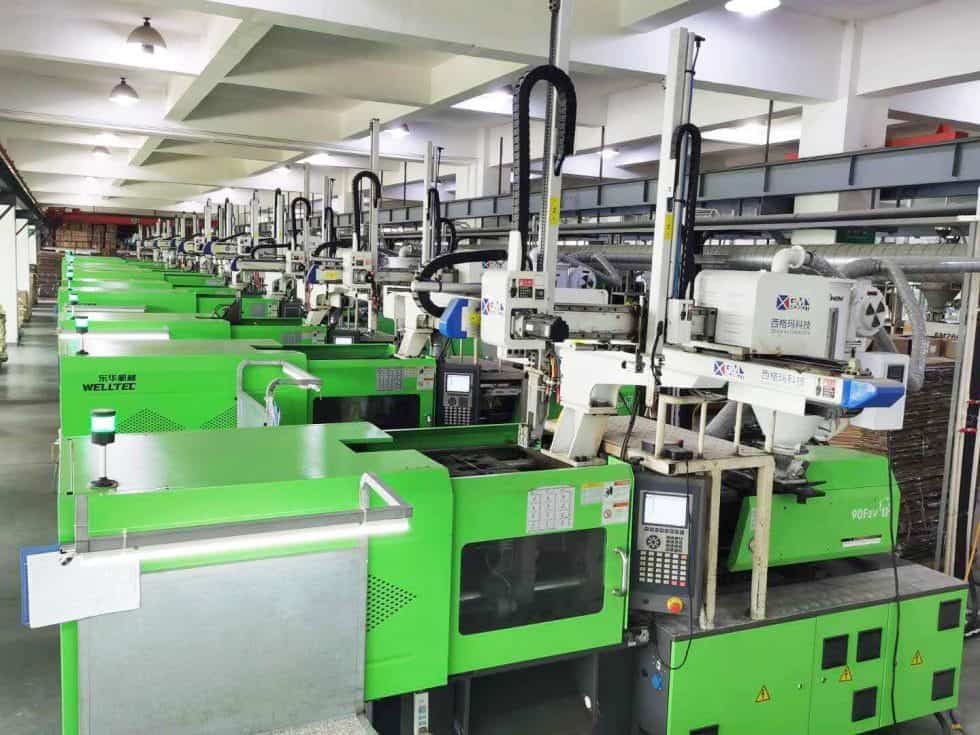Injection molding manufacturers are specialized companies that design, develop, and produce plastic components using the injection molding process, a highly efficient and precise manufacturing method.
If you’re looking for detailed information on injection molding manufacturer, you’re in the right place. Whether you’re a business owner, a product designer, or just curious about how those intricate plastic parts are made, understanding the role and processes of injection molding manufacturers is key.
Table of Contents
What is Injection Molding?
Injection molding is a manufacturing process where molten plastic is injected into a mold cavity, cooled, and then ejected as a solidified part. This method is widely used for producing high volumes of identical plastic items, from tiny medical components to large automotive parts.
Why Choose an Injection Molding Manufacturer?
Choosing an experienced injection molding manufacturer is crucial for the success of your project. These manufacturers bring expertise, precision, and efficiency to the table. They work with various plastics, from standard to engineering-grade, and ensure that your components meet strict quality standards.
How Injection Molding Manufacturers Operate
- Design Consultation: The process begins with a consultation where the manufacturer discusses the product’s requirements. This includes selecting the right material, understanding the product’s function, and finalizing the design specifications.
- Mold Creation: The next step is mold design and manufacturing. This involves creating a precise mold based on the product’s design, often using advanced CAD software and CNC machines. The mold must be durable and capable of withstanding the high pressures of the injection process.
- Material Selection: Injection molding manufacturers have access to a wide range of materials, including thermoplastics, thermosetting polymers, and elastomers. The choice of material depends on the product’s intended use, durability requirements, and cost considerations.
- Injection Molding Process: The actual molding process involves melting the chosen plastic material and injecting it into the mold cavity. Once the material cools and solidifies, the mold opens, and the part is ejected. This cycle can repeat thousands of times, making injection molding highly efficient for mass production.
- Quality Control: High-quality injection molding manufacturers prioritize quality control throughout the process. They use various techniques, such as visual inspections, dimensional analysis, and functional testing, to ensure each part meets the required specifications.
- Finishing and Assembly: Some injection molding manufacturers also offer post-molding services, such as finishing, painting, and assembly. This can include trimming excess material, adding inserts, or assembling multiple components.
Key Benefits of Working with a Reliable Injection Molding Manufacturer
- Cost Efficiency: Once the mold is created, the per-unit cost of parts is low, making it ideal for large production runs.
- Consistency: Injection molding provides high consistency, ensuring each part is identical to the last.
- Material Versatility: A wide range of materials can be used, allowing for flexibility in product design.
- Speed: Modern injection molding machines can produce parts rapidly, reducing lead times.
- Precision: Injection molding offers high precision, essential for complex parts with tight tolerances.
How to Choose the Right Injection Molding Manufacturer
- Experience and Expertise: Look for manufacturers with a proven track record in your industry. Their experience will ensure they can handle the complexities of your project.
- Capabilities: Ensure the manufacturer has the necessary equipment, technology, and materials to meet your requirements.
- Quality Assurance: Quality should never be compromised. Choose a manufacturer that adheres to strict quality control standards.
- Customer Support: A reliable manufacturer will offer strong customer support, from the initial consultation to post-production services.
- Cost Transparency: Make sure there are no hidden costs and that the pricing is transparent from the start.
Common Applications of Injection Molding
Injection molding is used across various industries, including:
- Automotive: Production of dashboards, bumpers, and other plastic components.
- Medical: Manufacturing of syringes, vials, and other medical devices.
- Consumer Goods: Production of household items like containers, lids, and toys.
- Electronics: Creation of housings, connectors, and other electronic components.
- Aerospace: Manufacturing of lightweight, durable components for aircraft.
Conclusion
Injection molding manufacturers play a critical role in producing high-quality plastic parts at scale. Whether you’re developing a new product or looking to mass-produce existing designs, partnering with the right injection molding manufacturer can make all the difference in achieving your project’s success.
By understanding their processes, benefits, and how to choose the right partner, you can ensure that your plastic components are produced efficiently, cost-effectively, and to the highest standards.












